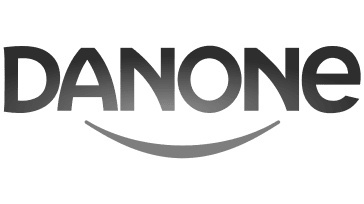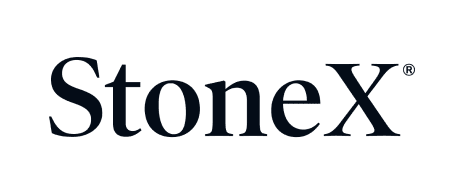- Home
- Industries
- Industries | Production & Manufacturing

Optimize your Production & Manufacturing with our advanced IT solutions
We help Production & Manufacturing companies optimize their operations with our tech solutions, which include automation, data analytics, or supply chain management tools.
Numbers
Global
Global manufacturing software market is projected to reach $24.03B by 2026, driven by software adoption for production and supply chain optimization.
DevOps
60% of manufacturers plan to increase their investments in DevOps in the next two years to speed up time-to-market.
Cybersecurity
Manufacturing is the 2nd highest industry for cybersecurity incidents globally, with 37% of incidents affecting the sector.
Business journey
Details
-
Cybersecurity
-
As production and manufacturing become increasingly digitized, the risk of cyber attacks and data breaches becomes greater. The production industry must prioritize cybersecurity measures to protect their systems and sensitive data.
-
Security assessments
Develop a baseline for the security posture of the manufacturing or production systems, highlighting the areas that need immediate attention. -
Multi-factor authentication
Add an extra layer of security to the production system by requiring users to provide multiple forms of authentication before accessing the system. This can include a combination of passwords, tokens, biometric data, or smart cards. -
Network segmentation
Divide the production network into smaller, isolated segments to reduce the potential impact of a cyber-attack. Make it harder for hackers to move laterally within the network and gain access to sensitive information or control systems. -
Cybersecurity framework implementation
Frameworks such as NIST or ISO provide guidelines and standards for implementing a cybersecurity program in a manufacturing environment. Implement a framework to prioritize and manage risks, and develop a comprehensive cybersecurity strategy.
-
-
Industry 4.0 technologies adoption
-
The production industry is undergoing a digital transformation with the adoption of Industry 4.0 technologies.
-
Production system assessment
Identify opportunities for automation and digitization with an assessment of the existing production system. Create a roadmap for the adoption of Industry 4.0 technologies. -
Technology adoption strategy
Develop a technology adoption strategy that is specific to your company. The strategy will outline the technologies to be adopted, the expected benefits, the timeline for adoption, and the resources required. -
IoT & analytics solutions
Use IoT sensors to collect real-time data from the production process. Utilize analytics tools to analyze the data and identify opportunities for increased efficiency, reduced waste, and improved product quality. -
Robotic & automation solutions
Increase productivity and reduce costs with custom robotics and automation solutions. For example, robots can be used to perform repetitive tasks, reducing the risk of injury and improving accuracy.
-
-
Legacy systems & infrastructure
-
Many production companies still rely on legacy systems and infrastructure that are not compatible with newer technologies. This can hinder their ability to innovate and adapt to changing market conditions.
-
System & infrastructure assessment
Conduct a technology audit to identify the legacy systems and infrastructure that need to be replaced or upgraded. Prioritize the modernization efforts and ensure that the most critical systems are addressed first. -
Modernization plan development
Based on the technology audit, develop a modernization strategy. The strategy will outline the systems to be modernized, the expected benefits, the timeline for modernization, and the resources required. -
Phased approach implementation
Legacy systems are often deeply ingrained in a company's operations, so a phased approach to modernization is often necessary. Identify low-risk, high-impact systems to modernize first, and then gradually work toward modernizing the rest of the architecture over time. -
Custom software solutions
Bridge the gap between modern technologies and legacy systems. For example, use middleware to integrate legacy architecture with cloud-based applications, or custom APIs to allow legacy systems to communicate with newer technologies. -
Cloud-driven solutions
Reduce the cost and complexity of modernization efforts with cloud-based solutions. Get access to new technologies and solutions that would otherwise be difficult or expensive to implement.
-
-
Data management & analysis
-
Production industry generates vast amounts of data from sensors, machines, and other sources. However, making sense of this data and turning it into actionable insights can be challenging, requiring sophisticated data management and analysis tools.
-
Data management strategy
Develop a data management strategy to identify the data sources, define data standards, and outline how the data will be stored and managed. -
Data collection & storage
Implement solutions for collecting and storing data from various sources such as IoT sensors, machines, and devices. This can include cloud-based data storage solutions that can easily scale up or down as needed. -
Data analytics tools
Implement analytics tools such as ML and AI to analyze the data and identify patterns and trends that can help optimize production processes. For example, use ML algorithms to predict equipment failure and schedule maintenance before breakdowns occur. -
Custom dashboards & reporting
Visualize and understand your company’s data more easily. Develop custom dashboards to quickly access the information you need to make informed decisions.
-
-
Supply chain disruptions
-
The COVID-19 pandemic has highlighted the vulnerability of global supply chains, with disruptions to transportation, logistics, and raw material availability impacting manufacturing operations. Build more resilient and flexible supply chains for your company.
-
IoT devices & sensors
Implement IoT devices and sensors to monitor and track inventory levels, shipments, and other important supply chain data in real-time. -
Blockchain-based technology
Use blockchain to provide transparency and traceability in the supply chain, allowing for more efficient identification and resolution of disruptions. -
Cloud-based management systems
Utilize cloud-driven supply chain management systems to provide real-time visibility into inventory, order processing, and shipment tracking, enabling better decision-making in case of disruptions. -
Predictive analytics implementation
Use data from supply chain processes to predict potential disruptions and take preemptive measures.
-
-
Advanced automation
-
The manufacturing industry is embracing advanced automation technologies such as robotics, AI, and machine learning to increase efficiency and reduce costs. However, these technologies can require specialized skills to operate and maintain.
-
Automation processes assessment
Conduct an assessment of the existing automation processes to identify opportunities for optimization, such as automating repetitive tasks, improving production line efficiency, and increasing throughput. -
Customized automation solutions
Develop and deploy customized automation solutions using technologies such as robotics, IoT, AI, and machine learning to enhance production processes, reduce costs, and improve quality control. -
Real-time monitoring & analytics
Implement real-time monitoring and analytics tools to provide a detailed view of the manufacturing process, enabling timely identification of bottlenecks, quality issues, and other performance concerns that could impact productivity. -
Automation integration
Integrate automation solutions with existing IT systems and infrastructure to enable seamless communication and data exchange across the manufacturing environment, facilitating better decision-making and increased operational efficiency. -
Ongoing maintenance & support
Get ongoing maintenance and support services to ensure that automation solutions continue to operate at optimal performance levels, identifying and addressing potential issues before they impact productivity or quality.
-
Solutions
Bespoke solutions for Production & Manufacturing businesses
Contact us
We're here for you, contact us We build and scale up software teams, so you can achieve your goals faster
Leave us a message, and you'll hear from us in 24h
They trusted us

Bitpanda

Danone

StoneX

Accor

Bridgestone

Standard Chartered
Case studies
Dive deeper into what we do
Services
Cooperation models to fit the nature of your business
Projects & Solutions
See moreTailored tech solutions to enhance your business capabilities
Access comprehensive solutions tailored to support your tech projects or drive growth in specific areas.
Managed Services
See moreCost-effective way to streamline your team maintenance costs
Outsourcing & Staff Augmentation
See moreAgile payroll solutions and expert teams to optimize your business ops
Link group in numbers
-
60+
trained professionals
in the recruitment team -
78%
of specialists in our network have 2+ years of experience working in distributed teams
-
1100+
is Link Group's monthly sourcing capability
Why Link Group
The Group you can trust
Plenty of tech development professionals in business have put their trust in us and our work.
“Our trusted partner for over half a decade.”

Przemek Kowalewski
CEO, Westwing
“Miles ahead of their competitors.”

Wojciech Łącz
CIO, Accor
“Reliable even for the most demanding.”

Piotr Kowalski
Head of Global Infrastructure, Danone
“I recognize and recommend Link Group as a highly valued partner and look forward to many years of precious partnership.”

Artur Hajski
Director of Engineering, UNUM
“Excellent support allowed for efficient time allocation.”

Dorota Sieklicka
Head of BI, CCC
FAQ
-
What are the differences between hiring an employee on an employment contract and B2B?
-
B2B and employment contracts primarily differ regarding the body of law to which the parties to both contracts are subject. For an employment contract, it is the Polish Labor Code, and for B2B contracts it is the Civil Code.
One of the more significant differences is the tax and social security payment liability. The employer covers these costs for an employee under an employment contract. In case of a B2B contract, the costs are borne by the contractor.
In addition, an employee on an employment contract is provided with paid vacation (20 or 26 days depending on tenure), paid sick leave, and additional days off for occasional special situations (funerals, births, etc.). An individual on a B2B contract may be provided with paid vacation under the terms of a gentleman's agreement with the employer.
Both contracts also differ in their notice periods: for an employment contract, the notice period ranges from 2 weeks to 3 months, while for a B2B contract, it is flexible, but usually 1 month.
-
-
How long does it take you to deliver a specialist/a team of specialists?
-
It depends upon the role, its complexity, and technical requirements. Usually, it takes us between 5 and 15 working days to fill a vacancy.
-
-
How do Link Group’s contractors report their working hours?
-
It works both ways: Contractors monitor and report their hours directly in the client's ATS system, where at the end of each month managers approve them or conduct the hourly reports in their Spreadsheets (also approved by the managers).
-
Contact us
We're here for you, contact us
Leave us a message, and you'll hear from us in 24h












.png)